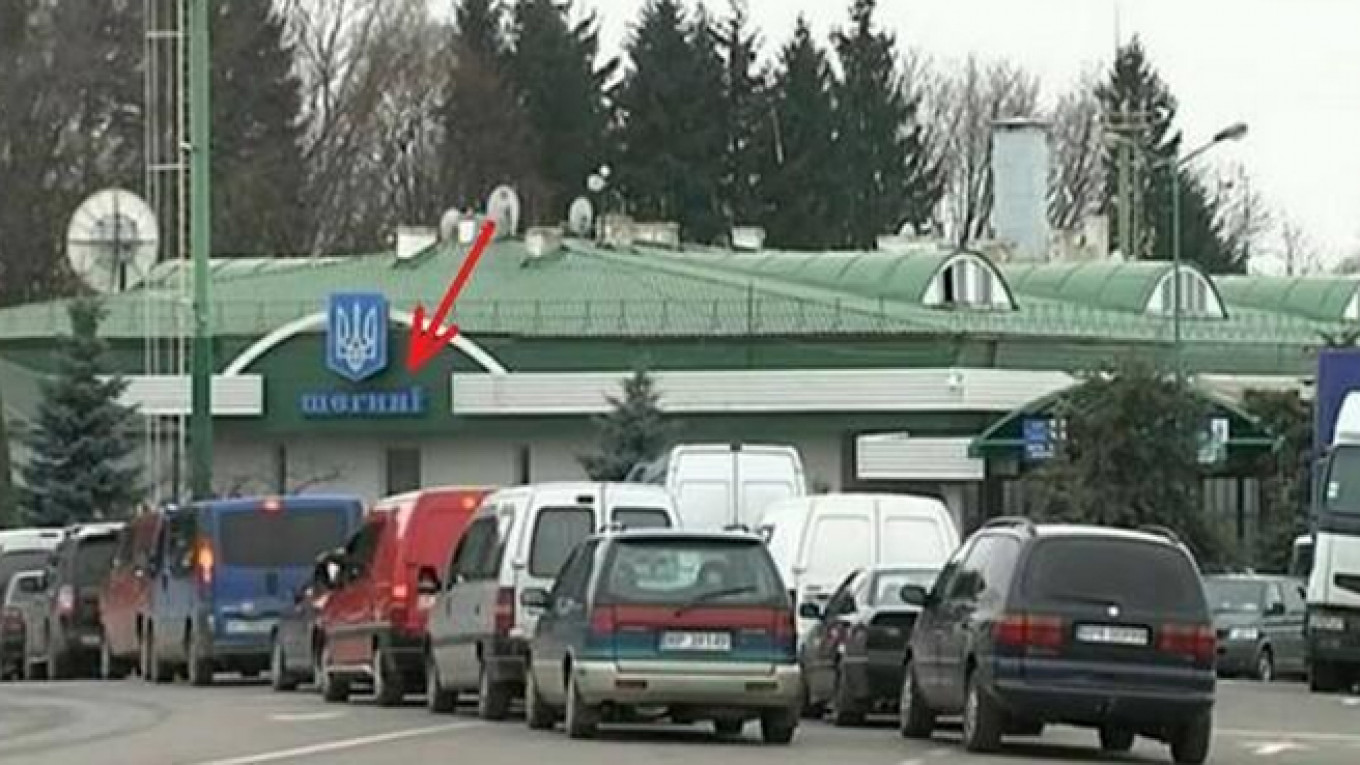The Federal Migration Service's recent announcement that an unprecedented number of Ukrainian citizens have rushed to Russia to seek asylum amid an escalating crisis back home has come under scrutiny from observers who say the number is no higher than in previous years.
According to the FMS, some 143,000 Ukrainian citizens sought asylum in Russia in the last two weeks of February, while the Border Service said some 675,000 Ukrainians had come to Russia in January and February.
"I am not surprised by these numbers because there are very close family, friendship and business ties between people of Russia and Ukraine, but I do not believe that all those who came are refugees," said Svetlana Gannushkina, head of Civil Assistance, a human rights group that helps migrants coming to Russia.
FMS head Konstantin Romodanovsky told Interfax on Monday that all of those who asked for asylum had been persecuted and subjected to intimidation in Ukraine.
"Lots of Ukrainian citizens are lost, scared and depressed," he said.
State-run Channel 1 aired a report last weekend that said there were long lines of cars at the Russia-Ukraine border, and that Russia's southern regions were being flooded by refugees. Ukrainian media quickly refuted this claim, however, saying the footage was misleading because it had actually been taken on the Ukrainian-Polish border.
Regional authorities said the number of migrants from Ukraine in February had climbed 53 percent in the Rostov region and 71 percent in the Kursk region.
But Gazeta.ru cited local migrants' rights activists Tuesday as saying that no flood of migrants from Ukraine had been recorded in Russia's Belgorod, Bryansk, Rostov and Kursk regions, despite authorities saying thousands had been arriving there.
Gannushkina also said the regional offices of Civil Assistance in Bryansk, Belgorod and Voronezh regions had not received any inquires from Ukrainians.
"When refugees from Syria, Egypt, Armenia, and Georgia were coming to Russia because of conflicts in those countries, they all sought our assistance, but no Ukrainians have come to us recently," she said.
"When 40,000 Armenians came to Russia from Baku it was a catastrophe, even though many of them also had relatives or friends in Russia."
President Vladimir Putin said at a news conference Tuesday that Russia was ready to accept all Ukrainians who wanted to come to Russia, including residents of the western parts of Ukraine.
"Do you know how many people came to Russia from Ukraine last year? 3.3 million people. And almost 3 million of them came to work in Russia. Calculate the average salary of 3 million people. It is billions of dollars and it is a significant contribution to the country's GDP, so this is no joke," he said.
"We accept everyone, and lots of those who come to work in Russia are from western Ukraine, for us they are all equal and are all our brothers."
Other Russian officials also said that Ukrainians coming to Russia could help some Russian regions develop, especially the Far East.
Last year, the Institute for Demographic Research issued a report that said the average number of Ukrainians crossing the Russian border stood at 6 million for each of the past five years, with most of those who came being labor migrants. The overall amount of Ukrainians living in Russia is some 7 million people, according to the report.
"I think all these comments about the number of Ukrainian refugees will go down now, since Putin said at his news conference that Russia will not invade Ukraine. All this talk was only necessary to justify possible intervention," Gannushkina said.
Contact the author at [email protected]
A Message from The Moscow Times:
Dear readers,
We are facing unprecedented challenges. Russia's Prosecutor General's Office has designated The Moscow Times as an "undesirable" organization, criminalizing our work and putting our staff at risk of prosecution. This follows our earlier unjust labeling as a "foreign agent."
These actions are direct attempts to silence independent journalism in Russia. The authorities claim our work "discredits the decisions of the Russian leadership." We see things differently: we strive to provide accurate, unbiased reporting on Russia.
We, the journalists of The Moscow Times, refuse to be silenced. But to continue our work, we need your help.
Your support, no matter how small, makes a world of difference. If you can, please support us monthly starting from just $2. It's quick to set up, and every contribution makes a significant impact.
By supporting The Moscow Times, you're defending open, independent journalism in the face of repression. Thank you for standing with us.
Remind me later.






